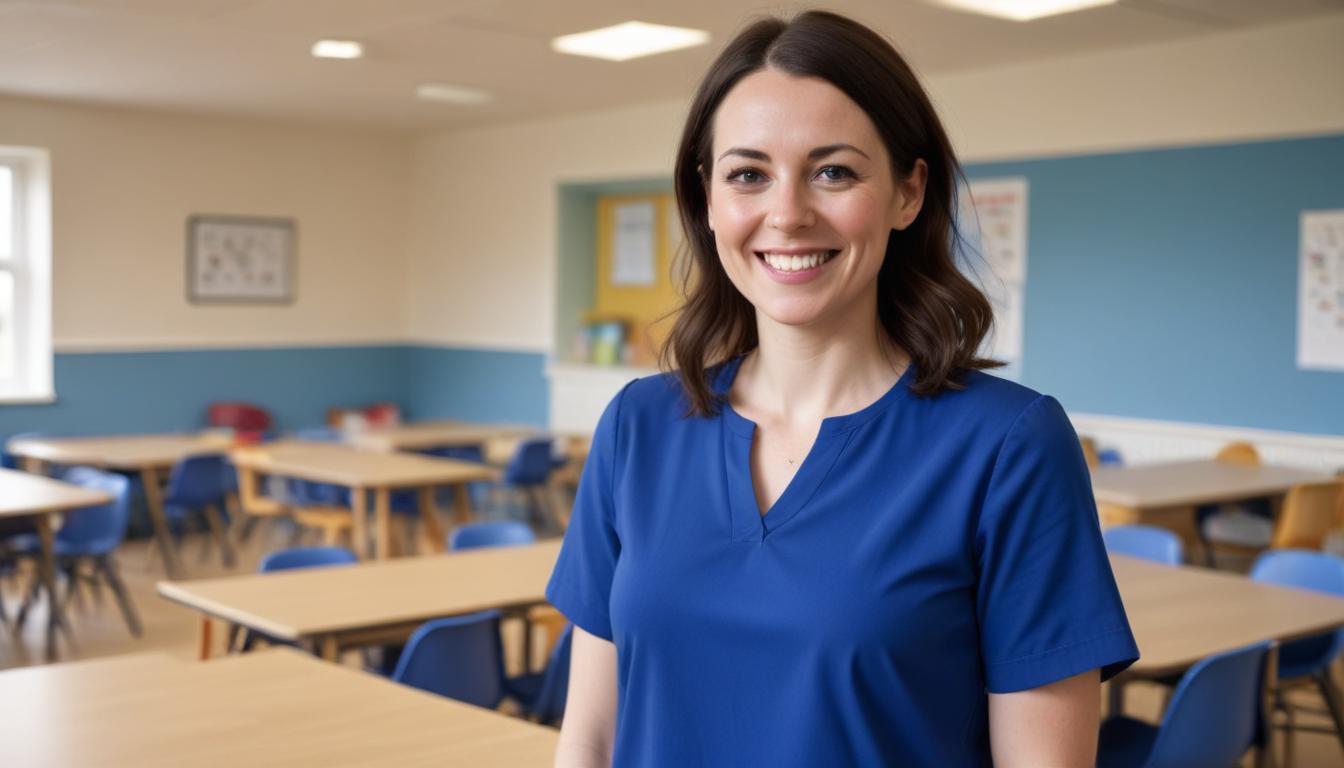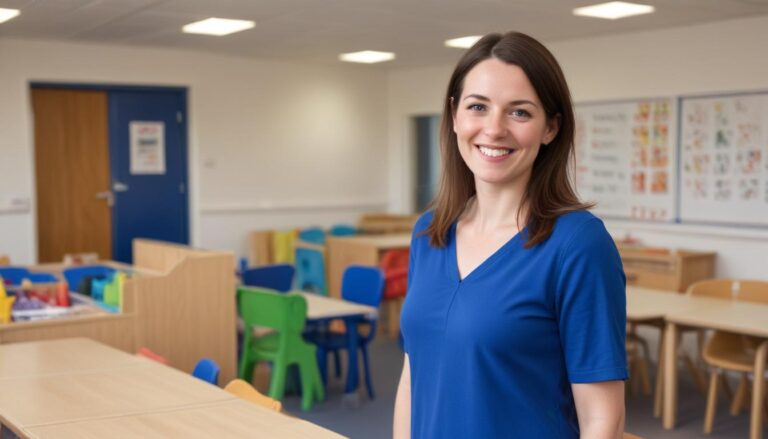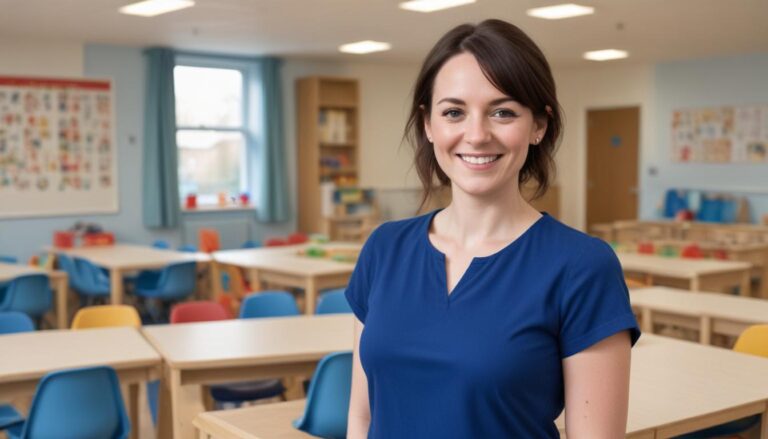
This guide will help you answer 1.2. Identify the benefits for the child for each activity listed.
Musical activities offer numerous benefits for children across various developmental stages. From enhancing cognitive skills to supporting emotional growth, each activity contributes uniquely to a child’s development. Let’s explore how different musical activities benefit children in three distinct age groups: babies under 6 months, young children aged 1 to 2 years, and young children aged 3 to 5 years 11 months.
Babies Under 6 Months
Singing Lullabies
- Cognitive Development: Hearing different tunes helps babies begin recognising patterns in sounds. This early exposure to rhythm lays a foundation for language development.
- Emotional Bonding: When carers sing lullabies, babies feel comforted. This builds secure attachment, which is essential for emotional development.
Playing Gentle Instrumental Music
- Auditory Stimulation: Listening to soft instrumental music aids in the development of hearing pathways in a baby’s brain. It helps them discern different pitches and tones.
- Calms and Soothes: The gentle sounds can help in lowering heart rate and may contribute to more regular sleeping patterns.
Tummy Time with Music
- Motor Skills: Tummy time strengthens the muscles in a baby’s neck and shoulders. Adding music improves focus and can extend the duration of tummy time as it entertains the baby.
- Sensory Stimulation: Music adds an auditory element to the experience, enhancing sensory integration by combining touch (from the body contact with the floor) and hearing.
Baby Music Classes
- Social Development: Attending music classes introduces babies to social environments. Interaction with peers starts, albeit minimal at this age, helping early social skills.
- Cognitive Growth: Structured classes provide varied stimuli, which aids overall cognitive development by introducing rhythm, melody, and timing through simple activities.
Young Children 1 to 2 Years
Musical Instruments for Toddlers
- Motor Skills: Playing instruments like tambourines or drums encourages fine motor skills. Grasping instruments and controlling movements support hand-eye coordination.
- Sensory Exploration: Different textures and sounds from the instruments enhance tactile and auditory processing. This promotes exploratory learning.
Action Songs and Rhymes
- Language Development: Repetitive lyrics and actions help toddlers acquire new vocabulary. Actions paired with words aid in memory retention.
- Physical Coordination: The actions in these songs improve body awareness and coordination. Following directions enhances their listening skills.
Dancing to Music
- Physical Development: Dancing enhances gross motor skills by improving balance, coordination, and spatial awareness. Movement strengthens muscles and builds endurance.
- Emotional Expression: It allows toddlers to express feelings through movement. This form of expression is essential, especially as verbal skills are still developing.
Singing Together
- Social Interaction: Singing in a group fosters a sense of belonging and cooperation. It teaches children the importance of taking turns and being part of a community.
- Cognitive Skills: Memorising lyrics develops memory and introduces the concept of sequencing as they follow the order of the song.
Creating a Music Box
- Decision-Making Skills: Choosing instruments from a music box encourages independence and decision-making. It fosters confidence as children explore different sounds.
- Creativity: It supports imaginative play by allowing children to create music, which aids cognitive development.
Young Children 3 to 5 Years 11 Months
Musical Storytelling
- Language Skills: Children learn new vocabulary and sentence structures through storytelling. Associating sounds with characters enhances understanding and memory.
- Imagination and Creativity: Music and stories together ignite creative thinking. Children learn to visualise and narrate, which supports creative development.
Making Music Together
- Social Skills: Playing instruments in a group setting promotes teamwork and cooperation. Children learn to listen to each other and work harmoniously.
- Understanding of Rhythm and Harmony: Creating music enhances the understanding of rhythm and harmony, which directly relates to cognitive skills like mathematics.
Singing Songs with Actions
- Motor Coordination: Songs that incorporate actions improve fine and gross motor skills through precise and coordinated movements.
- Language Development: Repetitive phrases in songs increase vocabulary and understanding of language nuances.
Listening and Drawing
- Emotional Expression: Drawing what they hear allows children to express emotions creatively. It gives them a way to communicate feelings visually if they find verbal expression challenging.
- Creativity and Imagination: This activity enhances creative thinking as children associate abstract music with concrete images.
Rhythm and Movement Games
- Timing and Coordination: Games like musical chairs teach children timing and coordination as they navigate when to move and stop.
- Social Skills: Participating in such games teaches children about rules, sportsmanship, and fair play, essential for social development.
Participating in a Music and Movement Class
- Physical Fitness: These classes incorporate a range of movements improving overall physical fitness. They build strength, flexibility, and endurance.
- Confidence and Self-Esteem: Learning new skills in a structured environment boosts self-confidence. Performing in front of peers enhances their self-esteem and encourages participation.
Why Musical Activities Matter
Musical activities engage children’s brains in unique ways, supporting various areas of development:
- Cognitive Skills: Regular engagement with music reinforces pattern recognition, mathematical skills, and memory.
- Emotional Development: Music provides an outlet for emotional expression and understanding. It helps children process feelings and develop empathy.
- Social Development: Group musical activities foster a sense of community and teach vital social skills like sharing, listening, and collaborating.
- Physical Development: From dancing to action songs, musical activities enhance motor skills and overall physical health.
Creating the Right Environment
The success of musical activities lies in creating an environment that fosters exploration and enjoyment:
- Provide a variety of musical experiences suited to each age group.
- Encourage children to explore different musical styles and instruments.
- Make music a part of daily routines, enhancing the atmosphere and learning experience.
Incorporating these activities into daily routines enriches early years education, encouraging a lifelong appreciation for music. Engaging children with music helps boost their overall developmental journey, nurturing well-rounded individuals with strong foundational skills. Enjoyment and motivation can lead to a continued interest in music and related activities, benefiting their future learning and development.
Subscribe to Newsletter
Get the latest news and updates from Care Learning and be first to know about our free courses when they launch.




